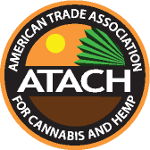West Virginia
- Overview of Cannabis and Hemp Laws
Cannabis:
- Recreational Use: Recreational cannabis remains illegal in West Virginia.
- Medical Use: Legalized in 2017 under Senate Bill 386, allowing medical patients access to non-smokable forms of cannabis, such as oils, pills, and topicals.
Hemp Intoxicants: West Virginia regulates hemp intoxicants within a hemp-specific framework, allowing products like delta-8 THC under specific state regulations.
- Historical Context
- 1931: Cannabis prohibition begins in West Virginia.
- 2017: Senate Bill 386 legalizes medical cannabis, establishing a regulated program for patients with qualifying medical conditions.
- 2022: Regulatory updates introduce oversight of intoxicating hemp-derived products.
- Recreational Cannabis Laws
- Possession Limits: Recreational possession is prohibited with no allowances for non-medical users.
- Cultivation: Home cultivation is not permitted for recreational purposes.
- Public Use: Public cannabis use is illegal, with penalties for violations.
- Sale and Retail: Dispensaries operate only under the medical cannabis program, with recreational sales prohibited.
- Medical Cannabis Laws
- Patient Eligibility: Qualifying conditions include chronic pain, PTSD, epilepsy, and cancer.
- Product Access: Medical cannabis is available in non-smokable forms, including oils, patches, and capsules.
- Program Details: Patients must obtain a medical cannabis card issued by the state, with dispensaries regulated under the West Virginia Medical Cannabis Act (Senate Bill 386).
- Hemp-Derived Intoxicants
- Regulatory Status: West Virginia permits hemp-derived intoxicants within a “Hemp-Specific Framework,” allowing products like delta-8 THC under specific state regulations.
- Testing and Labeling: Products must meet state standards for testing and labeling, including potency and purity limits.
- Age and Retail Restrictions: Sales of hemp intoxicants are restricted to individuals 21 and over, with regulations in place to manage product accessibility.
- Criminal Penalties for Cannabis Offenses
- Possession: Recreational cannabis possession is penalized as a misdemeanor, with up to six months in jail for a first offense. Repeat offenses or possession with intent may lead to felony charges.
- Sale and Distribution: Unauthorized sales are felonies, punishable by 1 to 10 years depending on specifics such as location or sales to minors.
- Trafficking and Cultivation: Cultivating cannabis without a medical license is prohibited, with felony charges for offenders, carrying sentences based on quantity and distribution intent.
- Social Equity Programs
- Eligibility Criteria: West Virginia does not currently offer a social equity program for cannabis or hemp industries.
- Licensing Benefits: No specific licensing benefits or reduced fees are available for impacted communities.
- Additional Support: The state does not provide support programs or resources for social equity within the cannabis industry.
- Business Types and Operations
- Licensing Types: West Virginia’s medical cannabis program licenses dispensaries, processors, growers, and laboratories; no recreational licenses are issued.
- Regulatory Requirements: Licensed businesses must comply with guidelines on security, record-keeping, and operational compliance as outlined by the West Virginia Medical Cannabis Act.
